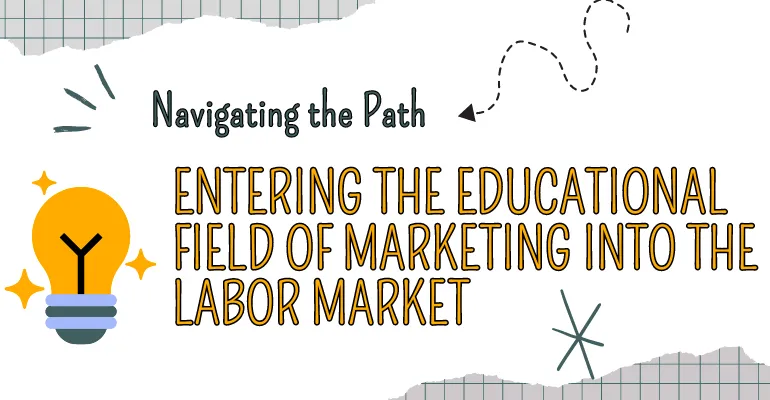
Navigating the Path: Entering the Educational Field of Marketing into the Labor Market
Embarking on a career in marketing is an exciting journey, filled with opportunities for creativity, strategic thinking, and impactful contributions to business success. However, transitioning from the academic study of marketing to practical application in the workforce can be a daunting task. This article aims to guide aspiring marketers on how to effectively bridge the gap between education and employment, highlighting key strategies, skills, and considerations necessary for a smooth entry into the labor market.
Understanding the Landscape of Marketing Careers
Marketing is a broad discipline encompassing various specializations, including digital marketing, brand management, market research, advertising, and sales. Each area requires a unique set of skills and offers different career paths. Understanding the landscape of marketing careers is crucial for aligning educational pursuits with professional aspirations.
Specializations within Marketing
- Digital Marketing: Focuses on online channels to reach consumers, including SEO, content marketing, social media, email marketing, and analytics.
- Brand Management: Involves managing a brand’s image and reputation through strategic planning and execution of marketing campaigns.
- Market Research: Analyzes consumer behavior and market trends to inform business decisions and strategies.
- Advertising: Creates and manages promotional campaigns across various media platforms to increase brand visibility and engagement.
- Sales: Directly interacts with customers to sell products or services, requiring strong communication and negotiation skills.
Preparing for the Labor Market
Gaining Practical Experience
While academic knowledge forms the foundation of a marketing career, practical experience is equally vital. Internships, part-time jobs, and even volunteering opportunities in marketing roles offer invaluable insights into the industry. These experiences not only enhance your resume but also provide networking opportunities and a chance to apply theoretical concepts in real-world scenarios.
Developing Essential Skills
Marketing professionals need a blend of hard and soft skills to succeed. Hard skills include proficiency in marketing tools (e.g., Google Analytics, Adobe Creative Suite), understanding of digital platforms, and analytical abilities. Soft skills encompass creativity, communication, teamwork, problem-solving, and adaptability. Continuous learning and skill development are essential in the fast-paced marketing environment.
Building a Professional Network
Networking plays a pivotal role in career advancement. Attend industry events, join professional organizations, and leverage online platforms like LinkedIn to connect with marketing professionals. Networking can lead to mentorship opportunities, job leads, and valuable industry insights.
Crafting a Strong Personal Brand
In the competitive job market, standing out is crucial. Develop a personal brand that reflects your professional identity and values. This can be achieved through a compelling LinkedIn profile, a portfolio showcasing your work, and consistent engagement in relevant online communities.
Transitioning from Education to Employment
Tailoring Your Resume and Cover Letter
Customize your resume and cover letter for each job application, highlighting relevant skills, experiences, and achievements. Quantify your accomplishments wherever possible to demonstrate tangible impact.
Preparing for Interviews
Research the company and role thoroughly before interviews. Be ready to discuss how your education, skills, and experiences align with the position. Also, prepare thoughtful questions to ask interviewers, showing your interest and enthusiasm.
Continuous Learning and Adaptation
The marketing field evolves rapidly with technological advancements and changing consumer behaviors. Commit to lifelong learning through professional development courses, certifications, and staying informed about industry trends.
Conclusion
Entering the labor market after studying marketing requires a strategic approach that combines academic knowledge with practical experience, skill development, networking, and personal branding. By understanding the various specializations within marketing, gaining hands-on experience, and continuously adapting to industry changes, aspiring marketers can successfully transition from education to a fulfilling career in the dynamic world of marketing.




